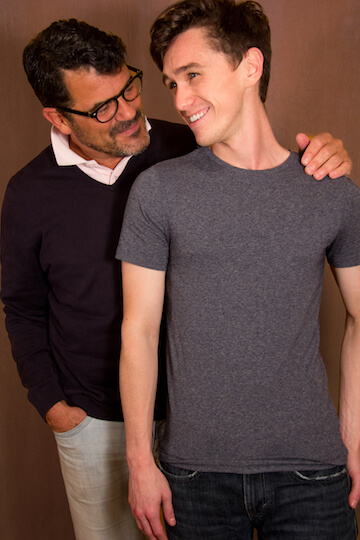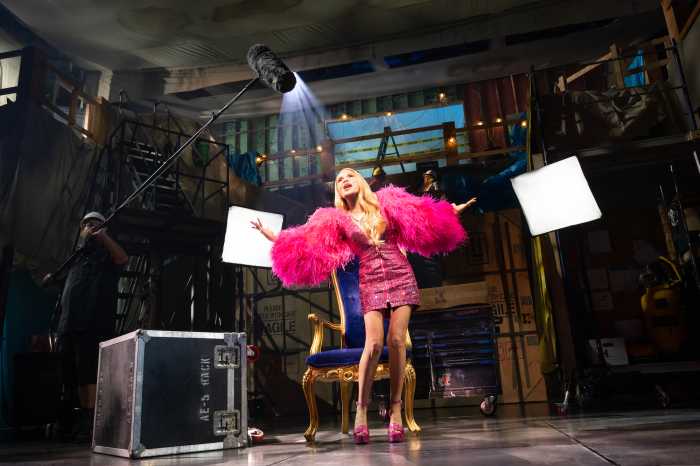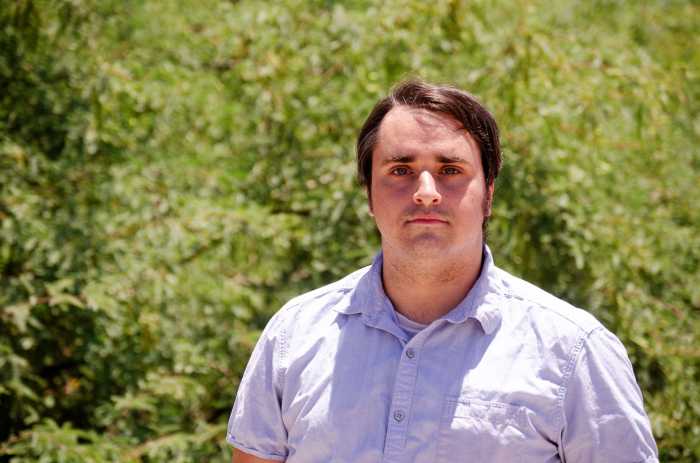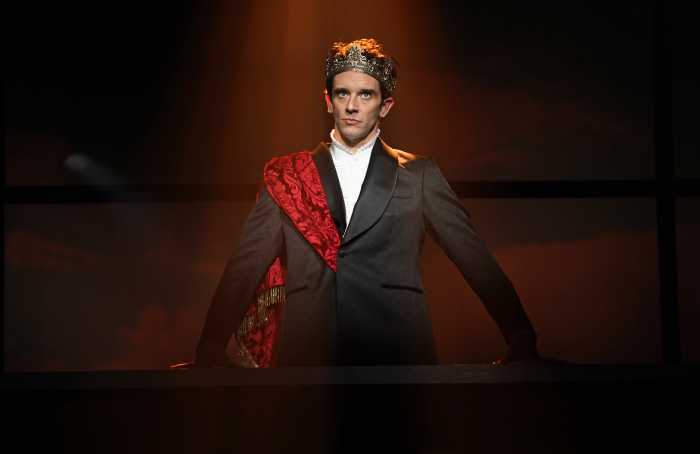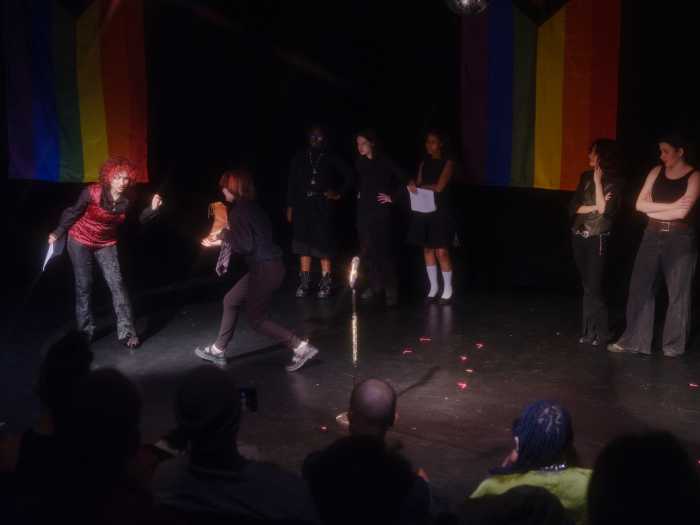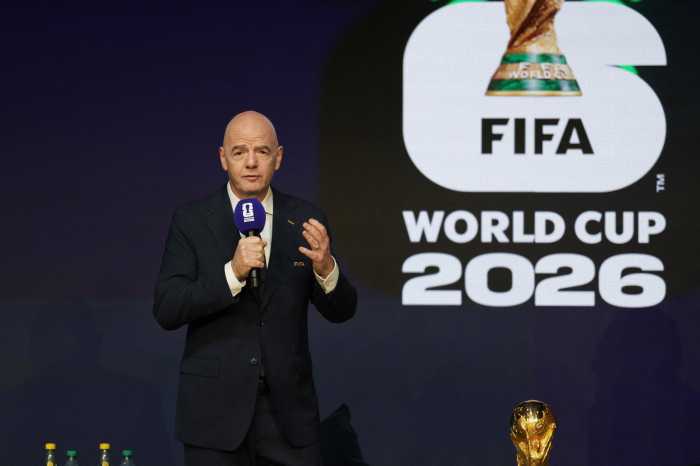Quinn Coughlin in Andy Halliday’s “Up the Rabbit Hole,” directed by G.R. Johnson at Theater for the New City through October 15. | KEVIN CRISTALDI
Queer playwright Andy Halliday has a sincere quibble with the gay community. In its decades-long crusade for equality and respect, the public image of gay men has been somewhat sanitized. Certain honest, warts-and-all portrayals onstage are not only seen as politically incorrect, but as a tacit betrayal. Drug abuse, for example, runs rampant among gay men, but that inconvenient truth is not fully being told.
With “Up the Rabbit Hole,” Halliday wants to change the conversation. He wrote the drama, in part, “to wake our community up to this epidemic that no one is talking about and to disrupt the idea that we must constantly propagate a positive queer image.”
On that score, Halliday succeeds.
“Up the Rabbit Hole” is a raw, unflinching appraisal of a young gay man’s descent into the hell that is drug addiction, and, as the title suggests, his struggle to climb out of it.
Gay man strives to climb out of jagged chasm of sex and drug addiction
Based on the playwright’s own harrowing journey of abandonment, drug abuse, and recovery, the story revolves around Jack (Tyler Jones), dealing with self-esteem issues surrounding being adopted. His dance career is sidelined by a major hamstring injury, and he yearns to locate his birth mother.
The play, directed with economy by G.R. Johnson, opens with Jack in his New York studio apartment dominated by a large mattress, doing mounds of coke with a blond, chiseled Adonis named Timothy (Quinn Coughlin), a shady model/ actor/ cater-waiter. He’s a hustler on every level, and when he claims he has modeled for Abercrombie & Fitch, it’s easy to believe.
Jack, who wonders aloud if he still qualifies as a twink, is unabashedly gay — nattering on about dance, Liza Minnelli, and Donna McKechnie, later lip-synching to Eydie Gormé’s rendition of “The Man I Love.” If Timothy says he’s straight and has a girlfriend, he also has a serious cocaine habit that Jack is all too happy to finance, even though he himself is strapped for cash.
At times, Halliday’s script feels remarkably authentic and is rich with detail. Timothy is so coked up, he’s paranoid about the neighbors hearing them through the gap under the door. And when he spies what he thinks is spilled coke on the floor, he takes a straw and starts snorting. It’s probably just lint.
This is just one of many coke-fueled scenes. One even finds Jack home, in his underwear, watching porn on the computer, doing lines all by himself.
Peter Gregus and Tyler Jones in “Up the Rabbit Hole.” | KEVIN CRISTALDI
To its credit, “Up the Rabbit Hole” manages to generate no small amount of tension. The erotic heat between Jack and his impossibly hunky drug buddy is palpable, intensifying as they do their seductive tango. It’s only a matter of time before Timothy’s “look but don’t touch” stance morphs into something violently carnal.
Jack’s life starts to turn around after he meets his birth mother (Laralu Smith) and half-brother, Brad (a highly appealing Andrew Glaszek). Perhaps too conveniently, Brad is not only gay but once also spiraled out of control abusing drugs, finding salvation in rehab. Naturally, he becomes the big bro Jack never knew he had, counseling him on conquering his demons.
Another potential lifeline is Robert (Peter Gregus), a well-off theater director smitten with the witty young dancer. In another tidy coincidence, Robert’s ex-boyfriend was a mess of an addict (meth and coke “took away his soul”) and he knows the signs well. At first, Jack is unable to accept Robert’s attentions.
Both Jones and Coughlin deliver compelling portrayals, no small feat when the script often calls for being high out of their minds. Jones reveals a core of inner strength even when Jack is at his lowest, most insecure moments. Coughlin sidesteps stereotype by giving Timothy layers that are complex and unexpected. He makes us believe that, on some level, Timothy is lonely and truly does long for a connection with Jack.
Despite the authenticity, the plot has its share of lapses in logic. Why did it take three whole days, partying together in the micro apartment, for Timothy to notice the large gap under the door, or for Jack to discover that Timothy is straight and resistant to sex with guys?
Not that such glitches take away from the overall production, which brims with insightful observations. Sometimes partying is more about ameliorating loneliness than actually having sex (at one point, a partied-out Jack admits he’s pretty much numb from the waist down, anyway). Never mind that it’s a false sense of camaraderie. The play astutely illustrates that no matter how dark or deep that rabbit hole is, there is a shining ray of hope.
Glitches aside, Halliday should be commended for taking a bold step in amping up the dialogue on a fraught, vital issue.
UP THE RABBIT HOLE | Windowpane Theatre Company | Theater for the New City | 155 First Ave. at 10th St. | Through Oct. 15: Thu.-Sat. at 8 p.m.; Sun. at 3 p.m. | $25 at Smarttix.com or 212-868-4444 | 100 mins., with no intermission

